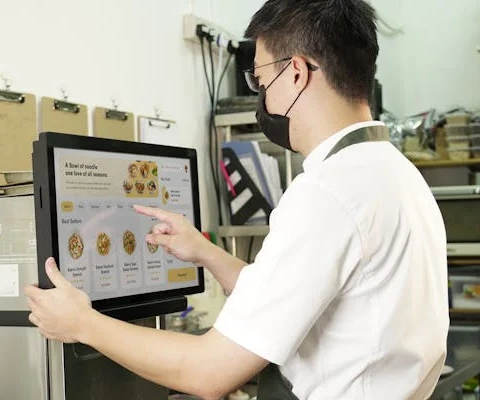
Running a restaurant’s finances can be challenging and complex but rewarding when done correctly. This is because even the most successful restaurant can quickly become unprofitable if finances are not handled efficiently. With many variables like inventory, payroll, and daily expenses, managing restaurant finances is not an easy task for many. However, with the right financial strategies your restaurant can remain profitable and sustainable. Below are five essential tips to help you keep your restaurant’s finances in check:
1. Track Your Expenses Daily
Everything from ingredients and other kitchen supplies to utilities and wages of the staff adds up quickly. Monitoring these expenditures in real time helps avoid unnecessary surprises at the end of the month. Whether you use accounting software, spreadsheets, or a specialized restaurant management system, it’s essential to categorize and log each expense.

Keeping track of such costs in detail helps management understand if it’s in good shape. It gives room for sound planning as you will know where you need to cut costs or invest. Continual tracking of the expenses helps avoid unnecessary purchases and maintains a stable cash flow with which both planned and unplanned expenses can be covered.
2. Consider Outsourcing Accounting
Managing books of accounts yourself, along with many other responsibilities, might become cumbersome and prone to mistakes. Outsourcing your restaurant accounting services to professionals offers several benefits. An experienced accountant can handle tasks like:
- Tax preparation
- Conduct routine and annual audits
- Financial reporting
- Cash flow management with precision
- Offer insights into cost-saving opportunities
Working with experts also provides access to advanced accounting software and tools, offering better financial oversight without the need to train or hire internal staff. When choosing a company, ensure it has a strong reputation in restaurant finances and accounting, as they will understand the industry’s unique challenges.
3. Create a Monthly Budget
Based on the type of restaurant, a well-managed budget will help plan future spending and indicate which areas of your restaurant finances need readjustment to put the establishment back on course.
Consider seasonal fluctuations when making a budget. Many restaurants peak during holidays and weekends but experience slow businesses during other periods. Adjusting the budget based on these fluctuations enables the restaurant operator to be better prepared to handle cash flow throughout the year.
4. Monitor Inventor Closely
Keeping close tabs on your stock will prevent over-ordering, which leads to waste. Regular inventory checks let you easily monitor what sells quickly and what doesn’t so you can think of wiser purchasing decisions. An inventory tracking system can make this process much smoother and provide you with up-to-date data about stock levels. This helps manage supply orders effectively so you never run out of vital ingredients and keep your kitchen running without excess spending.
5. Automate Payroll Management
Payroll automation can save time and money. Automated systems will calculate wages, taxes, and deductions correctly, limiting any chances of costly errors or fines associated with disputes. Payroll automation provides better transparency, whereby the staff will be able to get access to their hours and pay information quite easily. This frees up your time to work on other areas of your restaurant and ensures timely and correct pay to your team for better employee satisfaction.
Endnote
Effectively managing restaurant finances requires discipline, planning, and the right tools. By tracking your expenses daily, considering outsourcing accounting, creating a monthly budget, monitoring inventory closely, and automating payroll, you will build a solid financial foundation for your restaurant. Track your inventory over time and make necessary adjustments continuously to stay profitable and ensure long-term sustainability.
The post 5 Tips to Manage Your Restaurant Finance appeared first on The Startup Magazine.

